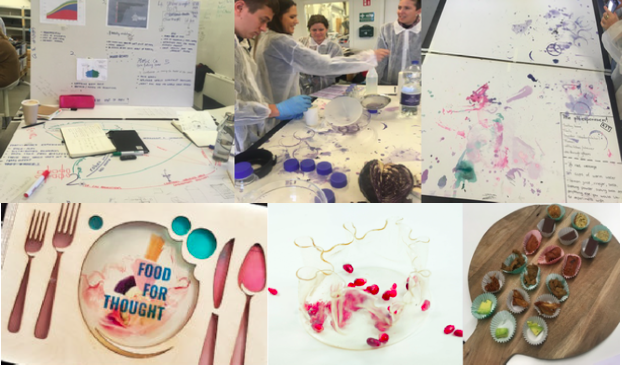Accepted abstract - Creative Tastebuds Symposium 2021
Speculative Gastronomy: a new approach to design pedagogy
Research paper
By Danielle Wilde, University of Southern Denmark, Kolding, Denmark
Food is an underexplored medium for design. And yet, food is the most intimate material relationship a living being has. The human food system is also the key driver of climate breakdown and ecology collapse as our agricultural, food distribution and waste practices are leading us beyond Earth system tipping points (Campbell et al., 2017; Steffen et al., 2015).
This article introduces speculative gastronomy, a design methodology that uses food as both bio- design material and context for action. The approach builds on an artistic strategy developed by Denfield, Cramer and Conley (2014) and reinterprets this strategy through participatory approaches to design. This methodological pivot enables designers to work with food as a starting point for thinking; to invite diverse societal actors to reflect on the present, speculate new – socially and ecologically sustainable – food practices; then back-cast to plausible (if, perhaps, radical), ‘implementable nows’: new food practices that are personally meaningful, contextually relevant and ecologically impactful. The method in action uses various culinary approaches and draws on bio-design and experimental ethnography as it seeks to find ways to bypass iterative improvements to human food practices towards real-world innovation. The objective is to leap beyond the adjacent possible to discover new, enriching food practices that might assist us in reconfiguring the human food system to be more socially and ecologically enriching.
Speculative Gastronomy has been taught at Köln International School of Design in Germany and at The University of Southern Denmark, Kolding and has proven an effective method through which to consider: Might food help us to shift the current impasse of ‘business as usual’, so we can envision seductive and desirable futures and radical, new ‘implementable nows’? We report on the method, how it is taught, the pedagogical impact of introducing food as bio-design material to design students at masters and undergraduate level and present a range of student outcomes. The future will taste different. Speculative Gastronomy makes a powerful move towards shaping that taste by including diverse stakeholders in the inquiry.

Figure 1: (l-r), top. Research and pH experiments; bottom. ‘Your DIY guide to bio-plastics’, bio-plastic bowl, defamiliarising foods.
References
Campbell, B. M., Beare, D. J., Bennett, E. M., Hall-Spencer, J. M., Ingram, J. S., Jaramillo, F., … Shindell, D. (2017). Agriculture production as a major driver of the Earth system exceeding planetary boundaries. Ecology and Society, 22(4).
Denfield, Z., Kramer, C., & Conley, E. (2014). Eating Ahead: Art, Life & Food. In T. Howells & L. Hayman (Eds.), Experimental Eating (pp. 8–23). Black Dog Publishing.
Steffen, W., Richardson, K., Rockström, J., Cornell, S. E., Fetzer, I., Bennett, E. M., … De Wit, C. A. (2015). Planetary boundaries: Guiding human development on a changing planet. Science, 347(6223), 1259855.